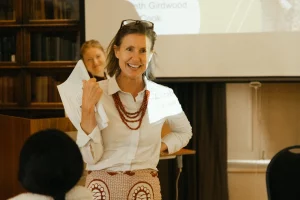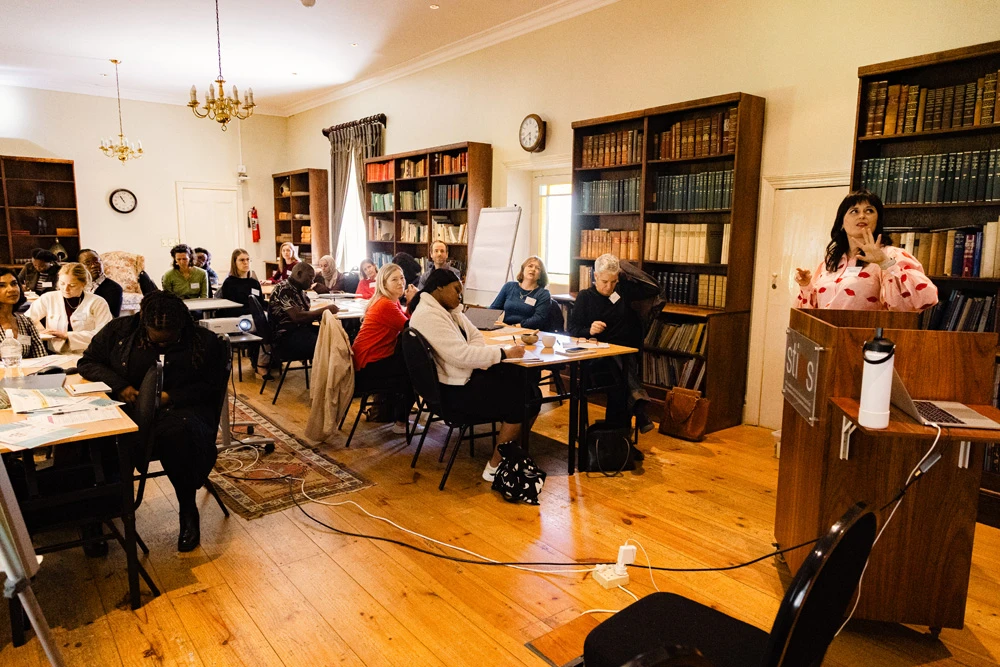On 27 May 2025, Resep hosted a workshop on socio-emotional skills and early learning at STIAS in Stellenbosch. The event brought together a mix of education researchers, policymakers, funders, and practitioners to spark dialogue on a topic that has received far too little attention in South African education policy: how children’s social and emotional capacities shape their learning journeys.
Despite mounting international evidence showing that socio-emotional skills—like perseverance, confidence, emotional regulation, and empathy—play a vital role in supporting literacy and numeracy development, these skills remain underexplored in local research and policy conversations. The workshop set out to change that.
The day kicked off with a session where Heleen Hofmeyr presented new work on how socio-emotional skills interact with foundational learning outcomes. The study, based on data from the Roots and Shoots project, presents novel longitudinal evidence from South Africa that socio-emotional skills at school entry are highly predictive of literacy and mathematics achievement two years later. This provides suggestive evidence that one way to address South Africa’s foundational literacy and mathematics crisis is to foster socio-emotional skills in early childhood education programmes.
Next, Elizabeth Girdwood and Caylee Cook from DataDrive2030 and Catherine Draper from Wits University shared insights on how to measure these skills effectively in young children —no small challenge given the conceptual and methodological debates in the field. Their presentations sparked a lively Q&A, and the panel discussion that followed allowed for reflection on lessons learned from their experiences of developing tools to measure these skills.
In the afternoon, Alison McCallum led a highly interactive discussion on a pressing question: whose responsibility is it to develop socio-emotional skills, and how do we make the case for investing in these skills to a broader audience? Participants shared thoughtful, sometimes provocative perspectives on how schools, families, and communities can collaborate to nurture children’s holistic development.
What stood out across the day was the palpable sense of shared commitment. While participants brought different disciplinary lenses and institutional perspectives, there was clear consensus on one point: if we want to prepare South African children not just to pass exams but to thrive in life, we need to put socio-emotional learning on the policy agenda.
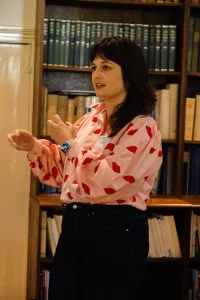
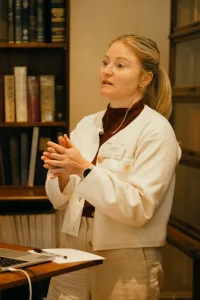
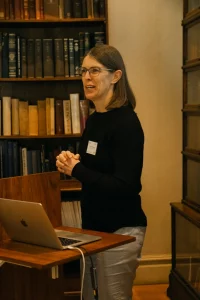
Looking ahead, one of the key outcomes from this workshop will be developing a roadmap for collaborative efforts—linking researchers, implementers, and decision-makers—to ensure socio-emotional learning receives the attention and investment it deserves in our education system.
If you’d like to learn more about the workshop or join future initiatives, please feel free to reach out to Heleen Hofmeyr at heleenhofmeyr@nullsun.ac.za.
*This workshop was generously funded by the Partnership for Economic Policy (PEP) through the African Fellows in Education Programme (AFEP).
